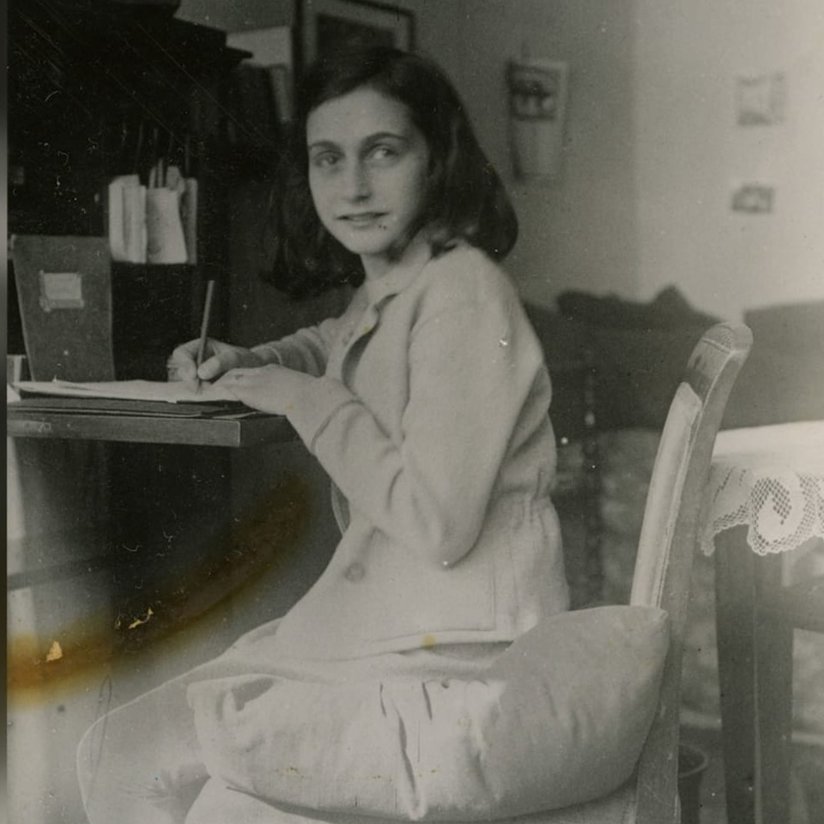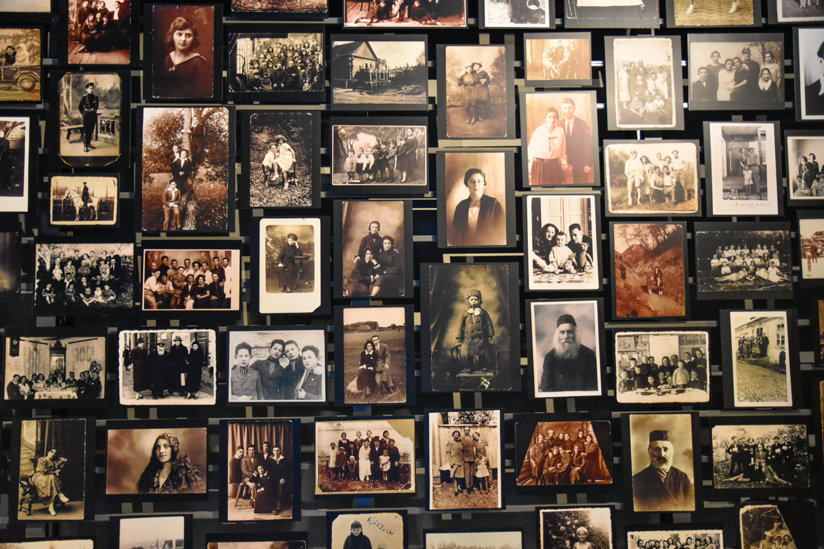
-
HOME
-
WHAT IS STANDOur Mission Our Values Our Help Contact
-
WHAT WE FIGHT FORReligious Freedom Religious Literacy Equality & Human Rights Inclusion & Respect Free Speech Responsible Journalism Corporate Accountability
-
RESOURCESExpert Studies Landmark Decisions White Papers FAQs David Miscavige Religious Freedom Resource Center Freedom of Religion & Human Rights Topic Index Priest-Penitent Privilege Islamophobia
-
HATE MONITORBiased Media Propagandists Hatemongers False Experts Hate Monitor Blog
-
NEWSROOMNews Media Watch Videos Blog
-
TAKE ACTIONCombat Hate & Discrimination Champion Freedom of Religion Demand Accountability
Anne Frank’s Final Entry, and What She Taught the World
Seventy-seven years ago today, one of the most influential and widely read writers of all time was silenced—not by death or infirmity or age, but by bigotry and hate.

Anne Frank, whose diary was later translated into 60 languages, never knew she was published, never knew she was to become an icon, never knew people the world over for generations would read her words and find hope awaken within themselves. Anne was simply recording her hopes and frustrations, her whims and fancies, her self-doubts and revelations—in short, the things a teenage girl would find important. With one difference: mixed in with the thoughts and feelings of a girl on the brink of womanhood were reflections on human nature, and a perspective on life far beyond her young years.
Anne received her diary—she’d requested it—on her 13th birthday, June 12, 1942, and immediately began writing. Less than a month later she, her family, and several others went in hiding in a cramped space, the “Secret Annex,” in an Amsterdam warehouse, hidden behind a bookcase, afraid to flush the toilet during the day for fear of discovery, and dependent on the kindness of two Christian friends, who, at the risk of their own lives, brought them food and water along with news of the outside world.
Mixed in with the thoughts and feelings of a girl on the brink of womanhood were reflections on human nature, and a perspective on life far beyond her young years.
On March 28, 1944, those in the Secret Annex heard an appeal on the radio from Dutch minister Gerrit Bolkestein, who had fled to London. He urged all Dutch citizens to hold on to and preserve their letters, stories, scribbles—any documents that could provide future generations the story of what happened to their country and the world.
Bolkestein’s appeal inspired Anne. She determined to tell the story of her two years in hiding with a book she entitled Het Achterhuis, or The Secret Annex.
During the months of May and June, Anne worked feverishly on the book. Fifteen-year-old Anne was quite critical of 13-year-old Anne’s writing, and rewrote and edited it, cutting passages, and inserting new ones. She had written over 50,000 words, over 200 pages, and she now undertook, in her final two months in hiding, to make them the best they could possibly be.
It was as though she knew her time was rapidly coming to an end.
After two years shut off from most human contact, Anne and her companions in the Secret Annex learned of the D-Day invasion of June 1944. For the first time in their voluntary entrapment, there was concrete hope for freedom. The elation didn’t last. Two months later, on August 4, Gestapo agents, acting on a tip, raided the secret annex behind the bookcase and separated and shipped off the inhabitants to various concentration camps where all but Anne’s father, Otto, perished.

Rescued from Auschwitz by Soviet troops in January, Otto Frank needed months to recover his strength, then returned home to Amsterdam where he learned from a friend of the deaths of his wife and daughters.
The friend had salvaged papers from the Secret Annex that the Nazis had overlooked, among them Anne’s diary and other writings. It took some time for Otto to muster the courage to read his late daughter’s words, but when he did, he was shaken. “I had had no idea of the depth of her thoughts and feelings,” he observed, years later. “I had to acknowledge that I had not known what went on in her mind.”
The friend had salvaged papers from the Secret Annex that the Nazis had overlooked, among them Anne’s diary and her other writings.
Otto Frank was right. A great deal went on in Anne’s mind:
“I want to go on living even after my death! And therefore I am grateful to God for this gift, this possibility of developing myself and of writing, of expressing all that is in me. I can shake off everything if I write; my sorrows disappear; my courage is reborn. But, and that is the great question, will I ever be able to write anything great, will I ever become a journalist or a writer?”
True to her dream, Anne didn’t just keep a diary. She also left us an unfinished novel, 34 short stories and fairy tales, and a compilation of memorable lines by others in her Book of Beautiful Sentences.
But the one constant was the diary. On March 16, 1944, she wrote, “The finest thing of all is that I can at least write down what I think and feel, otherwise I would suffocate completely.”
Today, thanks to Anne’s determination to write down what she thought and felt, the young girl with dreams of becoming a famous writer accomplished far more than that. She taught us all to keep hope alive, no matter what: “In spite of everything I still believe that people are really good at heart. I simply can’t build up my hopes on a foundation consisting of confusion, misery, and death. I see the world gradually being turned into a wilderness, I hear the ever-approaching thunder, which will destroy us too, I can feel the sufferings of millions and yet, if I look up into the heavens, I think that it will all come right, that this cruelty too will end, and that peace and tranquility will return again.”









